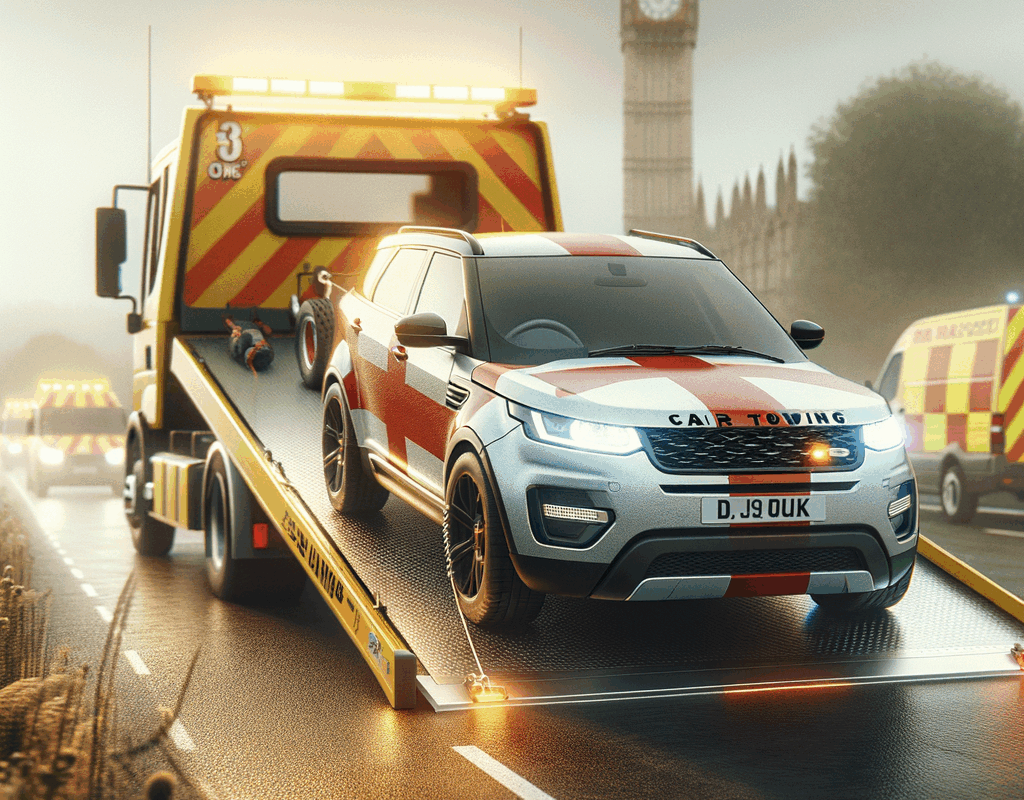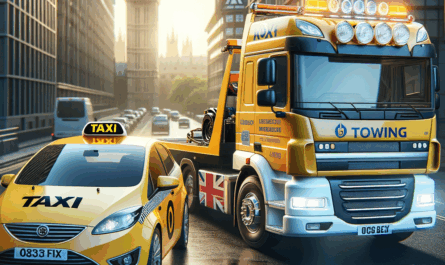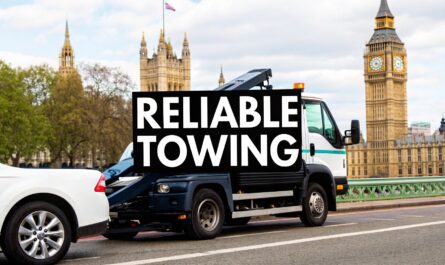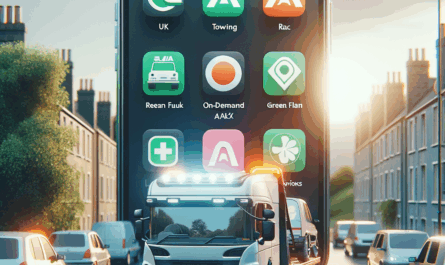If you’re mapping a UK holiday or commuting across counties, knowing how to find a reliable Car towing service England can turn a crisis into a hiccup. In this guide, you’ll learn when to call for help, what to say on the phone, how pricing works, and how to prevent breakdowns altogether. You’ll also get safety steps for motorways, insurance and repair essentials, and real-world examples so you can make smart, fast decisions on the roadside.
> A stress-free road trip isn’t luck—it’s a checklist, a plan, and a few numbers saved in your phone.
Car towing service England: When you actually need it
The most common reasons cars stop in the UK
– Flat or faulty batteries are the number-one cause of breakdowns, especially in cold weather, according to the AA. See the AA’s overview of common causes for context at their official site.
– Tyre damage due to potholes spikes seasonally; RAC data shows pothole-related breakdowns have hit multi-year highs in recent years.
– Overheating and cooling system issues rise in summer traffic.
– Fuel mistakes (misfuelling) still happen—diesel in petrol, or vice versa—often requiring specialist recovery.
These issues are rarely predictable, but you can reduce your risk with simple checks, which we’ll cover below.
Safety comes first—especially on motorways
– Pull onto the hard shoulder or a designated emergency refuge area if available.
– Turn wheels toward the verge, apply the handbrake, and switch on hazard lights.
– Exit via passenger-side doors and get behind a barrier. Keep pets safe and in control.
– On motorways, do not place a warning triangle; it’s unsafe in fast traffic.
For authoritative advice, see National Highways’ breakdown guidance.
A quick case study: Holiday rescue on the M5
A family en route to Cornwall lost power on the M5 near Taunton. They exited safely, shared their location via their phone, described the dashboard warning lights, and confirmed they had children onboard. The dispatcher prioritised the call, sent a flatbed suitable for their SUV, and arranged drop-off at a garage still open for diagnostics. Total delay: 90 minutes, holiday saved.
How to choose and use a car towing service in England
Car towing service England options vary by response time, coverage, and vehicle capability. Matching your situation to the right provider keeps costs lower and resolves issues faster.
What to check before you call
– Coverage area and ETA: Ask for an estimated time of arrival and whether they cover your current and destination postcodes.
– Vehicle type: EVs, AWD, and low-clearance cars often need a flatbed.
– Capacity: Large vans and campers may exceed standard `GVW`/`MAM` limits.
– Destination options: Home, nearest approved garage, or your preferred mechanic.
– Availability: 24/7 dispatch and access to authorised motorway recovery if applicable.
What to say on the phone (use this mini script)
1. Share precise location: motorway, junction number, nearest marker post, or exact GPS.
2. Describe the issue: noises, smells, dashboard lights, drivable or not.
3. Confirm passengers and special needs: children, elderly, disability, pets.
4. Vehicle details: make/model, fuel type, drivetrain (AWD/EV), and any modifications.
5. Drop-off preference: home, garage name/postcode, or onward travel needs.
The clearer your info, the faster the right truck arrives.
How pricing works (and how to avoid surprises)
– Call-out fee: Sometimes waived if you hold `Roadside` cover; otherwise a base fee applies.
– Hook-up/recovery fee: Charged to load and secure the vehicle.
– Mileage: Per-mile cost from pickup to drop-off; rates vary by region and time.
– Out-of-hours surcharge: Evenings, weekends, and holidays may cost more.
– Additional services: Winching from soft ground, EV safe-mode procedures, or flatbed requests can add cost.
Ask for a written or text quote before dispatch. Confirm whether waiting time, storage, or second-location drops are included.
Common mistakes that slow everything down
– Vague locations: Use motorway marker posts or smartphone GPS over landmarks alone.
– Not declaring EV/AWD: The wrong truck can’t safely recover your car.
– No access to keys/documents: Keep essentials to hand for handoff at the scene.
– Assuming insurance covers everything: Policy limits and exclusions vary widely.
Prevent breakdowns before a UK road trip
The best Car towing service England is the one you never need. A 10-minute check and smart packing reduce risks dramatically.
The 10-minute pre-trip check (the quick routine)
– Fluids: Engine oil, coolant, brake fluid, and screen wash.
– Tyres: Pressure to the door-jamb spec, plus tread depth (legal minimum 1.6 mm). Check your spare or inflation kit.
– Electrics: Battery health, lights, and `TPMS` warnings.
– Brakes and belts: Listen for squeals, feel for pull or vibration.
– Wipers and visibility: Streak-free wipes and a clean windscreen.
For a deeper walkthrough, see this pre-trip vehicle inspection checklist.
Pack a smart emergency kit
– High-vis vests, a torch, and a charged power bank.
– Rain ponchos, warm layers, and water.
– A reflective triangle for A/B roads (not for motorways).
– A tyre inflator/sealant, jump starter, and basic tools.
– Copies of insurance, breakdown cover, and important phone numbers.
Plan your route with UK-specific rules in mind
– Tolls and charges: `Dart Charge`, `M6 Toll`, and city schemes like `ULEZ`. Pay online where required to avoid fines.
– Low-emission zones: Check your car’s compliance before entering major cities.
– Rural gaps: Signal can be patchy; download offline maps and save contact numbers.
– EV drivers: Pre-plan high-speed chargers and have a backup site within range. Use apps with live status, not just location.
When a light comes on, act early
A new warning light at the start of a long drive often signals a small issue that becomes a big one with heat and load. Pull off safely, check your manual, and call for advice if unsure.
After the tow: Insurance, repairs, and onward travel
Even when a Car towing service England gets you off the roadside fast, you still need a smooth finish: repairs, claims, and getting back on schedule.
Insurance and breakdown cover—know your levels
– Breakdown cover tiers: `Roadside`, `Recovery` (national), `At Home`, and `Onward Travel`. Each changes what you pay on the day.
– Car insurance: Some policies include recovery, but limits apply to mileage, garage choice, and passengers.
– Authorisations: Keep claim numbers, policy references, and the garage’s estimate in one place. Confirm what’s covered before authorising work.
Picking a garage and avoiding delays
– Choose a garage that can diagnose your fuel type and technology (e.g., `OBD-II` diagnostics for modern cars, EV-trained technicians for high-voltage systems).
– Ask for an estimate with labour hours and parts lead times.
– Approve only necessary work to get mobile if you’re mid-journey; schedule cosmetic or optional fixes later.
Keep moving with onward travel options
– Courtesy car: Often included in `Onward Travel` cover; book early during holidays.
– Public transport: Trains can be faster than waiting for parts; compare total travel time.
– Accommodation: If stranded late, confirm nightly allowances and booking processes with your provider.
For a deeper dive into roadside options, see our UK roadside assistance guide.
Conclusion: Turn mishaps into manageable moments
A calm plan, a charged phone, and a few checks are the backbone of a stress-free trip. You now know when to call a Car towing service England, how to describe your situation clearly, what fair pricing looks like, and how to prevent many breakdowns. Save an emergency number, run the 10-minute pre-trip check, and keep this guide handy. Ready to make your next journey smoother—what will you add to your glovebox checklist today?
FAQ
Q: How much does a tow cost in England?
A: Prices vary by distance, time, and vehicle type. Expect a base call-out plus per-mile charges, with evening/weekend surcharges.
Q: How long will it take for help to arrive?
A: ETAs range from 30–90 minutes in cities to longer in rural areas. Share precise GPS to speed things up.
Q: Can EVs be towed?
A: Many EVs should travel on a flatbed to protect the drivetrain. Always tell dispatch you have an EV.
Q: What should I do if I break down on a motorway?
A: Pull over safely, hazards on, exit via passenger side, wait behind a barrier, and call for help. Don’t use a warning triangle.
Q: What documents should I keep in the car?
A: Insurance and breakdown policy numbers, photo ID, preferred garage details, and any warranty information.





